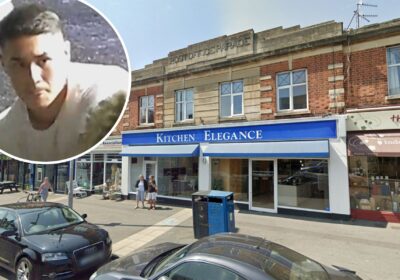In 2010, an NHS surgeon saved my life.
I had been referred to Poole Hospital with suspected bowel cancer. Scans confirmed my GP’s diagnosis.
Using state-of-the-art keyhole surgery, Professor Tas Qureshi performed a procedure which minimised the length of my stay in hospital – and meant I can now see my grandsons go to school. His expertise, internationally recognised, was matched by the care and professionalism of the nurses who looked after me so well.
I have nothing but praise for our NHS. It grieves me, therefore, to consider the underfunding which since 2010 has left the NHS overstretched and understaffed. Prior to 2010, NHS Budgets rose on average 3.7 per cent yearly. Since then, NHS budgets have risen on average 1.4 per cent yearly.
Despite being the sixth largest economy, we are only 14th in the OECD table for spend per head on healthcare.
Jeremy Hunt has announced the NHS will receive an extra £3.3bn over the next two years, but this is below the rate of inflation – therefore a real-terms cut – and experts warn this is probably only half of what is needed to keep the NHS afloat.
Only last month Amanda Pritchard, chief executive of NHS England, forecast a £7bn shortfall in funding next year, which it warned – despite the Mail on Sunday’s “Bonfire of the NHS Pen-Pushers” headline – could not be filled by “efficiency measures” alone.
In June this year there were 132,139 NHS posts vacant, including more than 46,000 nursing posts – a vacancy rate of almost 10 per cent.
Recently I met once more with Tas Qureshi. I belong to Swanage and Isle of Purbeck Semi-Colons, a support group for people of all ages living with bowel cancer. We’d made a donation to support the wellbeing of the nurses at Poole. They had faced the demands of working through Covid, proving their quality on a daily basis.
Tas was thoughtful and quiet when I met him. The operation he had been ready to perform that morning had been cancelled at the last minute. A shortage of beds meant that the operation could not go ahead.
I recalled my own operation – lying awake the night before, half dreading, half welcoming the next morning.
I could only imagine what it would have been like – after all of that – to be told at the last moment all of my waiting and hoping had been in vain.
A significant number of Poole Hospital beds are “blocked” as a result of the social care crisis.
Yet, as with the NHS, little seems to be in hand to provide the resources clearly required to ensure the adequate, dignified, care of the elderly and infirm.
Tas had already explained to me the UK has one of the lowest numbers of intensive care beds per head in Europe. The UK has 7.3 critical care beds per 100,000 people, compared to Germany’s 33.8. NHS providers have warned the government to address this.
The NHS is a gem. We fail ourselves as a nation if we let it founder. We fail those nurses, those surgeons and those doctors who always go the extra mile to keep us well.
CHRIS BRADEY
Chairman, Swanage and Rural Purbeck
Labour Party










Leave a Reply